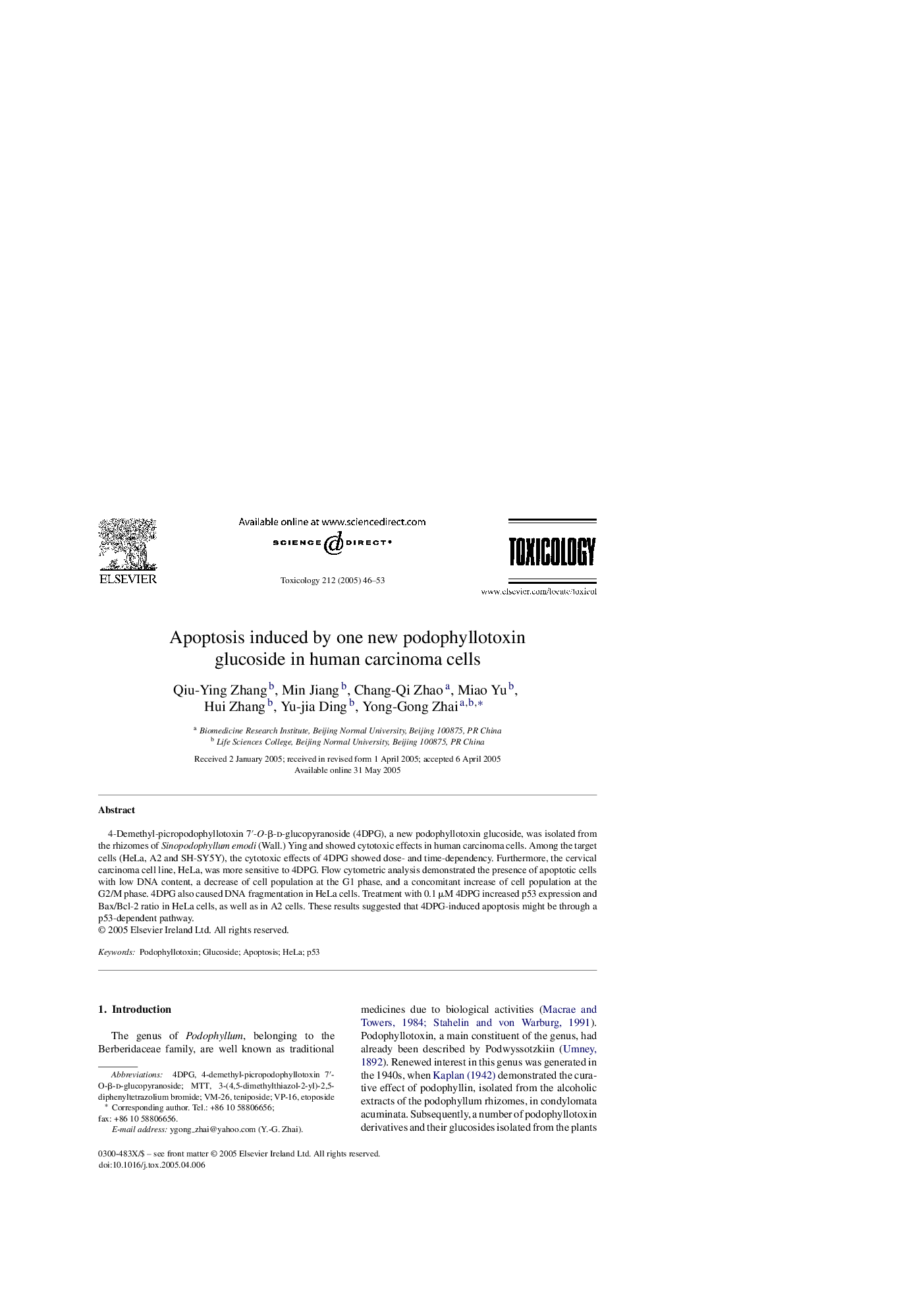| Article ID | Journal | Published Year | Pages | File Type |
|---|---|---|---|---|
| 9034910 | Toxicology | 2005 | 8 Pages |
Abstract
4-Demethyl-picropodophyllotoxin 7â²-O-β-d-glucopyranoside (4DPG), a new podophyllotoxin glucoside, was isolated from the rhizomes of Sinopodophyllum emodi (Wall.) Ying and showed cytotoxic effects in human carcinoma cells. Among the target cells (HeLa, A2 and SH-SY5Y), the cytotoxic effects of 4DPG showed dose- and time-dependency. Furthermore, the cervical carcinoma cell line, HeLa, was more sensitive to 4DPG. Flow cytometric analysis demonstrated the presence of apoptotic cells with low DNA content, a decrease of cell population at the G1 phase, and a concomitant increase of cell population at the G2/M phase. 4DPG also caused DNA fragmentation in HeLa cells. Treatment with 0.1 μM 4DPG increased p53 expression and Bax/Bcl-2 ratio in HeLa cells, as well as in A2 cells. These results suggested that 4DPG-induced apoptosis might be through a p53-dependent pathway.
Keywords
Related Topics
Life Sciences
Environmental Science
Health, Toxicology and Mutagenesis
Authors
Qiu-Ying Zhang, Min Jiang, Chang-Qi Zhao, Miao Yu, Hui Zhang, Yu-jia Ding, Yong-Gong Zhai,
